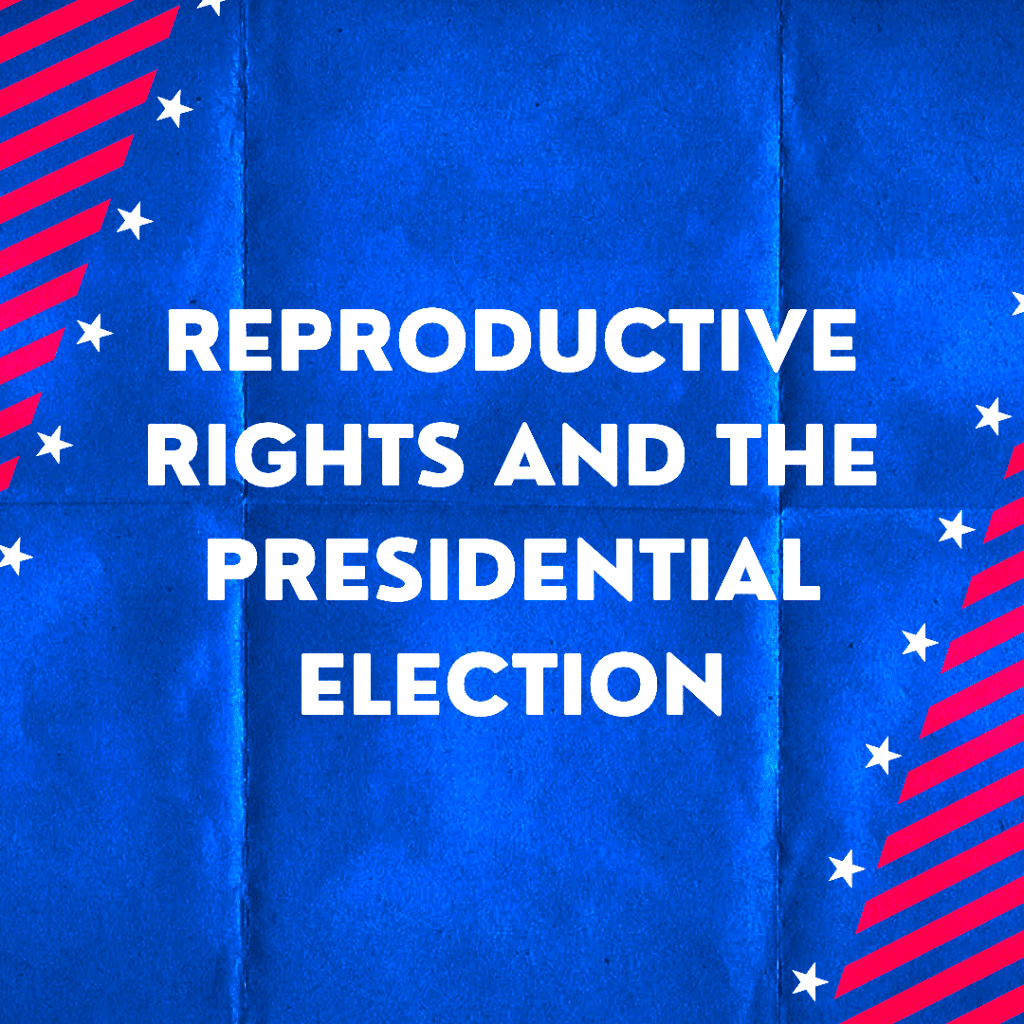By: Friday Faraday

The Story So Far
Almost a year into the Post-Roe world there are 24 states that have enacted extreme restrictions and total bans on abortions, and with this upcoming election it is not a stretch to state that the outcome could potentially lead to a national abortion ban or not. Currently, there are 10 confirmed candidates:
Democrats
Joe Biden
Marianne Williamson
Robert F. Kennedy Jr.
Republicans
Donald J. Trump
Nikki Haley
Vivek Ramaswamy
Asa Hutchinson
Larry Elder
Tim Scott
Ron DeSantis
There are still candidates on the Republican side that are considering making a run, including former Vice President Mike Pence, who in no surprise based on his public comments is in favor of banning abortion altogether. For the rest of the candidates, each one will have to go record with their position on the topics of reproductive and abortion rights, and for some, just like Pence, we already know their stance based on their prior actions and rhetoric.
Biden is a supporter of abortion rights, and on the other side, frontrunners Trump, Haley, and DeSantis have done some political tiptoeing around the issue. Trump, whose three Supreme Court nominees helped to overturn Roe has stated that he is “pro-life” but also that many Republicans poorly handled the topic of abortion. Haley has also stated that she is “pro-life” but also that is an issue that is very deeply personal for everyone. DeSantis has signed some of the most restrictive abortion laws in the country, first signing a 15-week abortion ban into law last year and recently signing a six-week ban, making those actions a clear view on his stance on reproductive rights.
Coverage for All
In January 2022, The Insurance Regulatory and Development Authority of India (IRDAI) issued a directive that all health insurance providers in India adhere to the Surrogacy Act of 2021 and the Assisted Reproductive Technology Act of 2021. This altogether sets to cover the surrogacy expenses of the surrogate and the intended parents. Under the new directive the intended parents should buy health insurance from an IRDA-recognized insurer that covers the cost of all pregnancy related expenses and any post-partum complications for a period of three years.
India is not the only country that is looking to establish insurance to cover reproductive health; however, while this ART act is intended to help many families in India with medical cost and protection, it does create many ethical and social issues.
The Surrogacy Act of 2021 includes guidelines that must be established such as intended parents must be heterosexual couples married for at least five years. The act also makes commercial surrogacy illegal, and only allows altruistic surrogacy which can greatly decrease the number of available surrogates. There are also age limits for the intended parents where the husband should be between 26-55 years old and the wife should be between 23-50 years old. It is also important to know that under the Surrogacy Act, authorities have been set up to verify that the guidelines have all been met in order for the surrogacy process to begin.
Equitable access to care when it comes to infertility, including ART is just part of the full view of reproductive rights. When you exclude people like those in the LGBTQIA2S+ community from having the same access and put in place heavily enforced requirements , it welcomes the criticism of any act or law, and leaves people questioning if it is all performative by keeping the status quo of heteronormativity only being recognized.
Divide & Deflection
In most recent polls, roughy over 50% of people are in support of abortion in all or most cases, so this isn’t going to be an issue that can be easily avoided on a national stage, and the fact the current heavy restrictions and bans are in republican states will set up those republican nominees to not only address this that, but also the divide within their own party.
Republicans are more divided on these questions: While a clear majority say abortion should be legal if a woman’s life is endangered (62%), a slightly smaller share say the same about a pregnancy that is the result of rape (56%). Republicans are far more divided on abortion if the baby is likely to be born with disabilities or health problems: 38% say abortion should be legal in this circumstance, while 29% say it should be illegal and 31% say it depends. (Hartig)
With this divide being present for the world to see, we are also seeing a shift in what’s being talked about other than reproductive rights. Economic issues, which are no stranger to any political election but are quietly being pushed to the front using the general political tact. Also the attack on gender-affirming care by the passing of restrictive bills is being used to deflect from abortion rights. However, whether it is part of the usual game of using a topic to break down your rival to gain votes or to fight for the most basic rights of others, Democratic candidates are going to put abortion back at the forefront and tie those restrictions and bans to every single Republican candidate.
The abortion bans are flatout unpopular, period, and they are setting up political consequences as the race gets closer. The support for abortion rights has grown larger and larger, especially in states that have varying political beliefs and in the states with bans. Now while these bans are being passed, they are also attracting a rising level of public scrutiny and criticism from not only within those states, but nationally, which will no doubt play a part in the Presidential election.
The Important Bits
As we are close to the one year mark post Roe and we have seen more and more restrictions become law, the cause and effect of that has equal to louder voices in support of abortion rights, and the public disdain for how restrictive these bills are becoming. Did the Republican party overplay their hand or underestimated the national public? That can only be answered on election day, but while many Republican controlled states took advantage when Roe was overturned, in the world of politics, nothing is ever forgotten and it will be used in election time by the other party. So, as we get ready for this wild and anxiety filled ride, make sure to take care of yourself and ask for support when you need it.
Referenced
Hartig, Hannah. “Opinions vary among Republicans, Democrats on several abortion-related issues.” Pew Research Center, 6 May 2022, https://www.pewresearch.org/short-reads/2022/05/06/wide-partisan-gaps-in-abortion-attitudes-but-opinions-in-both-parties-are-complicated/. Accessed 31 May 2023.

